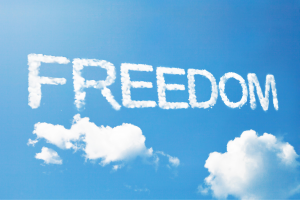Following the Facebook Farewell Party on Tuesday 23 June we said goodbye to our beloved Institute of Network Cultures facebook account. Here we present the 10 reasons why, followed by some useful tips that will help you let go of yours.
10 reasons to leave Facebook
- Facebook manipulates the relationships you have with your friends. Not all of your messages will be displayed to your friends. It is not transparent who sees them and who don’t. The Facebook’s algorithms that determine this are programmed to satisfy the advertisers first and foremost. Even users who pay Facebook to “boost” their posts have no control over it. This means that third parties have a direct influence on your Facebook Timeline; all the things you see, do or miss out on Facebook.
- You are a cash cow. All of your user data on Facebook – your posts, photos, likes, network, messaging, phone number, etc. – are being sold by Facebook to third parties and being used in advertisements. This is what you have consented to when you became a member. This also applies to all user data on acquired platforms like Instagram and Whatsapp. Facebooks current worth is 79 billion euros. All thanks to the free work you and your friends do for Mark.
- You are a lab rat. Facebook uses you as a study object without asking your permission. This means that, as is common in studies, they will change your surroundings to see how you react. For example to see if they can make you sad.
- Facebook knows more about you than you’d like them to know. Through like-buttons and other Facebook plugins tradable data profiles are being made of members and non-members of Facebook. These profiles are shared with the NSA, CIA and FBI within the PRISM program. Facebook also uses facial recognition technology and applies it to pictures of you, including photographs of you posted by others that are not tagged.
- Facebook censors. Severed heads, deep wounds, racist statements and horrific animal suffering are allowed by Facebook. But pictures of proud nursing mothers, or art images or political posters where breasts are depicted in a non-erotic way, are being censored.
- Facebook today is not the same as Facebook tomorrow. Facebook regularly adjusts the default functions and your own account settings. Adjustments that lead to the production of more marketable data are being pushed, such as specifying your telephone number, the recurring question of which primary school you’ve attended, or sound recordings through the microphone on your phone.
- You can check out, but you can not leave. It’s hard for you to leave and to permanently delete and move your data to another social networking site, if you should wish to do so.
- Facebook is harmful to the world. You are contributing to the gentrification in Palo Alto, California, which in turn leads to greater social and economic inequality and racial segregation.
- You harm the privacy of your friends and family without them having given you permission to do so. If you’re on Facebook messenger, logs all of your contacts (even those who are not on Facebook), your location and what other apps you use are redirected to Facebook.
- Facebook is an extremely addictive time waster. You can spend your time in a much better manner. In the end the number of contacts that you maintain via Facebook can be counted on three hands or so, you can also reach those people in a different way.
Furthermore, Facebook users are more unhappy than people who are not on Facebook.
Give it a try! Start by removing the Facebook Messenger app on your phone. Turn off the mail notifications and share your e-mail address with the few friends on Facebook that don’t have it already.

This is how you pack your suitcases on Facebook:
- Export your contacts
- Export anniversaries and events
- Download your account information: timeline info, posts that you have shared, messages, photos and much more.
1. Click in the upper right corner on any Facebook page and select Settings
2. Click Download a copy of your Facebook data under General Account Settings
3. Click Start My Archive
More information about what you can download.
- Let your friends know
Let your friends know by what (digital) means you can now be reached and ask for the contact details of your dear Facebook friends. For example, you can post a moving notice or goodbye message on your profile page or send a personal message to specific Facebook friends. Please bear in mind that your farewell message will disappear along with your account; sending an email to your Facebook friends might be a better option.
- Deactivate or delete your account
1) Deactivate:
This will not remove your account but render it deactivated. All your posts and photos remain on Facebook servers, and even if you log in again after one year, you will have everything back again. Please make sure to click the box to prevent your account from automatically switching on again after 2 weeks.
2) Remove your account:
Facebook of course prefers you to not remove your account, so they make this option a little trickier. In order to permanently delete your account you’ll have to pass a period of reflection that lasts several weeks. Go to facebook.com/help and enter ‘delete account’. Click on ‘let us know’ and then on ‘delete account ‘. Congratulations, you’ve freed yourself.
Mind you, completely deleting your account is impossible. Nearly all meta-data remains on the Facebook servers. If you create a new account with the same name or address your old account data will come back: your friends, hometown, your employer etc. Facebook will subsequently ask you to add these details.
Where can you go?
Online
- Alternative Social Media:
You can switch to another social media platform such as Diaspora (decentralized and open source), Red Matrix (decentralized and open source) or Ello (central in Canada).
There are several social media alternatives, but many are centrally located in America and will therefor present you with the same problems as Facebook. So consider your own requirements for the alternative.
Things to look out for:
A better alternative ….
– Uses Open Source (transparent software)
– Is decentralized (not managed by one owner)
– Enables you to manage your own data (if necessary via a personal server)
– Doesn’t apply patronizing censorship rules
– When you delete something, the data will actually be completely deleted
– Is hosted in the E.U. by a European company and not by an American parent company
- Email is still an excellent means of communication, especially if you use an encryption program such as PGP, so you can send messages encrypted and secured.
Offline
What you do on Facebook, you can partly do offline. Call a friend or visit your old aunt.


